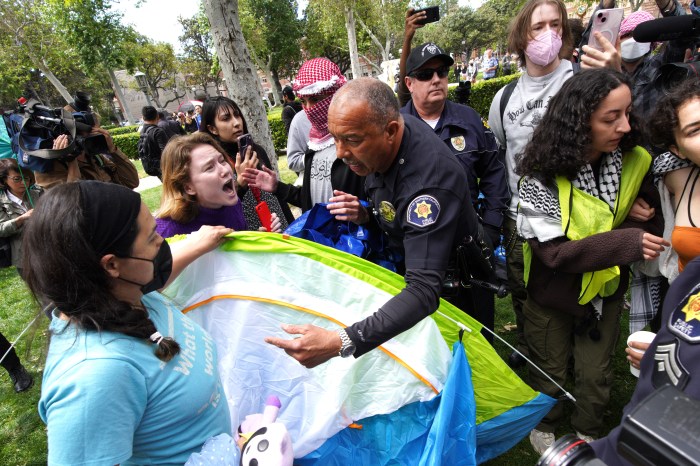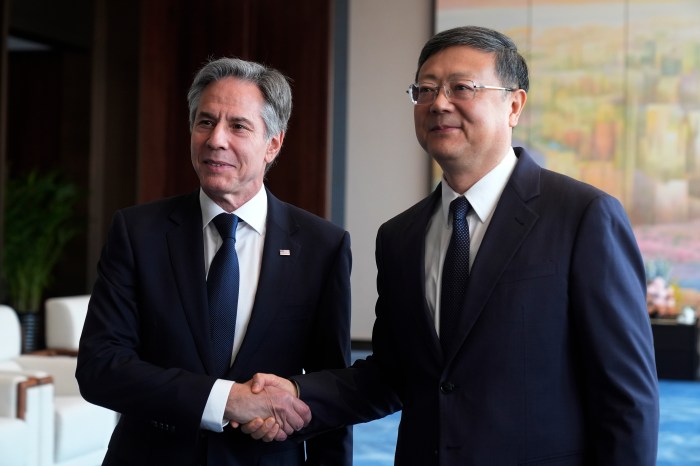CALGARY – A New Jersey woman who made headlines when she gave birth to twin boys at age 60 two years ago has some advice for a Calgary woman who just delivered her first children in her seventh decade.
Enjoy raising your babies. Don’t focus on your age.
Frieda Birnbaum’s words of encouragement came Thursday after a spokesperson for the Calgary Health Region confirmed that a 60-year-old woman had given birth at a city hospital.
The health region wouldn’t give details
In a statement released Thursday afternoon by the health region, the woman and her family declined to speak with media and asked that they respect her privacy.
The release said the mother and two infants were in good condition.
Birnbaum says the new mother needs to know she’s making history for herself and other women.
“Sixty’s just a number,” she said in an interview from her home in Saddle River, N.J.
“She should enjoy the opportunity to raise beautiful children and to help other women younger than herself not to fear that getting older means that you’re old.”
The mother was recovering in intensive care, while the twins were in neo-natal intensive care.
The network quoted the woman’s obstetrician, Colin Birch, as saying there are social and ethical considerations beyond the medical ones.
He said he can’t imagine being 65 and having two five-year-olds running around.
Birnbaum’s twin boys will turn two in May. She said it hasn’t been the least bit difficult keeping up with them. She’s as tired as any new mom with twins, she said, but it’s not related to her age.
She said the birth of her twin sons attracted attention from around the world. Many younger women scorned her decision, while those closer to her age supported her.
Women who use fertility treatments to become mothers long past natural child-bearing years may not be acting in the best interests of their children, said a medical ethicist from McGill University in Montreal.
No one has the right to interfere in natural conception, but ethics are different when medical advances are involved, said Margaret Somerville.
“Society has both a right and a duty to put regulations around the use of these technologies,” she said. “Those restrictions and rules should be fashioned from the perspective of what’s in the best interest of any future child.”
Somerville said the ethics become particularly complicated because most older women have stopped ovulating and use donor eggs, so they don’t even have a genetic link to the children they deliver.
It’s unlikely a mother of that age would be allowed to adopt, unless she was a grandparent, Somerville pointed out.
“Generally we don’t, and why don’t we do that? Because we think it’s not best for a child to have a parent that much older than them.”
Somerville said guidelines for fertility treatments were supposed to be laid out in the federal Assisted Human Reproduction Act passed in 2004, but the issue remains unclear.
“It’s all a bit of a mess, really.”
Public reaction to the births on news websites in Canada appeared to be mainly negative.
“This is the MOST SELFISH thing I’ve ever heard of. If the parents wanted children so badly, they should have checked their EGO’s at the door, and adopted a child at a much younger age,” one person wrote on a blog.
Other people were more upset at the medical community.
“What should we say about the so-called medical professionals who fertilized this woman? Just because you can do something doesn’t mean you should. What is next, a cadaver giving birth to children through some wonder of modern medicine? It’s appalling.”
However, others were more supportive and chastized critics for being sexist.
“Older men father children all the time and no one bats an eye.”
Birnbaum, a psychologist who also has two grown children and an eight-year-old son, said she was overwhelmed by the global interest in the birth of her baby boys. She recalled sneaking out the back of the hospital to avoid the media that gathered even before their birth. She repeatedly turned down book and movie offers to focus on her children.
There’s something about the age of 60 that upsets people much more than new mothers in their 50s, she said.
“I think 60 hit a nerve,” she said. “The six in it just seems so much older than 59, or 55.”
Still, she said she’s never mistaken for a grandmother and she believes that she’s ahead of a trend that will see older mothers more accepted as people try to balance careers and children.
“When I look 10 years down the line, it’s not going to be as much of a stigma.”


















